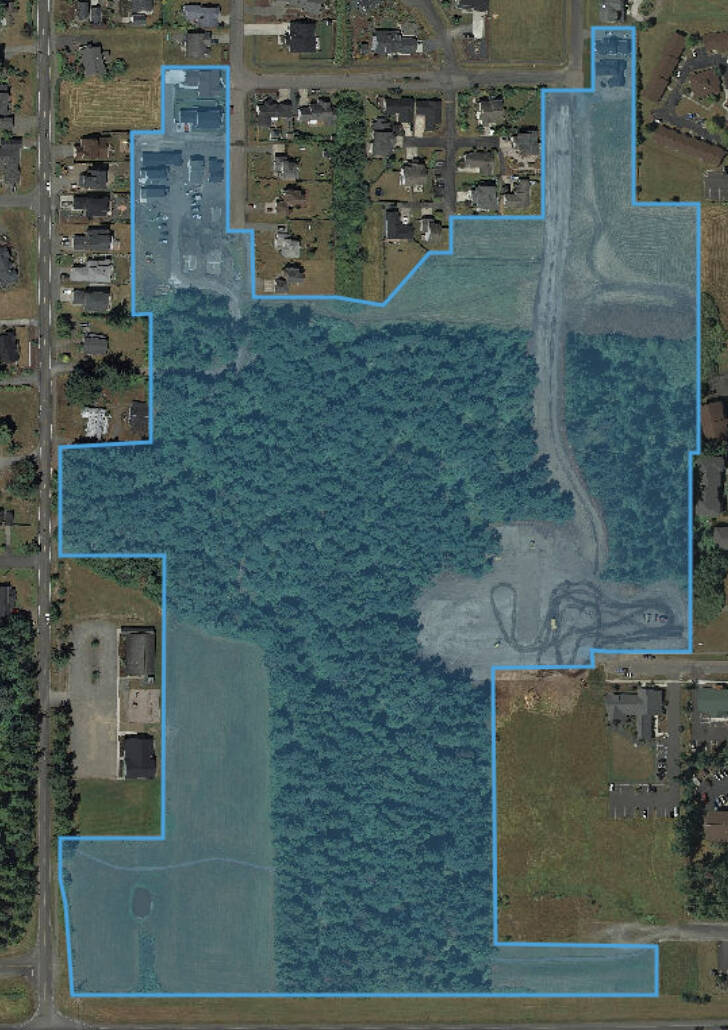A more than 20-year-old memorandum of agreement outlining the development of 33 acres of land between Main Street and Broadway Street north of Highway 20 could be limiting its capacity for affordable housing. Coupeville Town Council decided last week further discussion and public input is needed before determining how to proceed with it.
The agreement, made in January 2004 between the town and property owners Cecil and Cheryl K. Stuurmans, divided the land into nine areas with a certain number of dwellings allowed in each through the allotment of dwelling credits.
Of the 108 dwelling credits the entire property is worth, 49 credits have been used, 31 are considered unavailable and 28 remain across three undeveloped parcels today.
Changes to state legislation and town code, however, mean a wider variety of housing types and a higher number of dwellings within residential areas are possible throughout town, according to materials provided to the Council. Without the agreement, under those changes, the number of potential dwellings in the remaining undeveloped parcels could increase from 28 to 51.
Community Planning Director Joshua Engelbrecht presented five possible paths forward in coordination with the property owners to the council members, all of whom were in attendance except Pat Powell due to a family matter.
Doing nothing leaves the same 28 dwelling credits available that, when used, allow for 77 dwellings on the undeveloped parcels. Abandoning the agreement would subject the aforementioned those parcels to existing zoning designations, totaling in the aforementioned 51 remaining dwelling credits.
Engelbrecht explained it might be possible to transfer up to 31 of the unavailable credits to the undeveloped parcels. Doing so would amount to 59 dwelling credits that, if completely built out, would meet the original 108-dwelling estimate.
Amending the language of the agreement could permit the property to heed the Revised Code of Washington instead of the agreement when it comes to determining maximum allowed dwellings, potentially allowing for 66 dwellings on the undeveloped parcels. Amending the language could also lessen the credit value of smaller dwellings.
Council members asked several clarifying questions and expressed wanting to meet with Engelbrecht to gain a better understanding of the matter.
Perhaps most notably, Mayor Molly Hughes asked how the town could ensure the dwellings would stay as affordable as they would be intended to be. Engelbrecht said although he would need to do more digging, his “initial thoughts” were that the agreement should be able to “take into account what we need it to” if it were amended in such a way.
Hughes suggested holding a public meeting about the matter, to understand how the community’s development priorities may have changed since the agreement’s conception.



